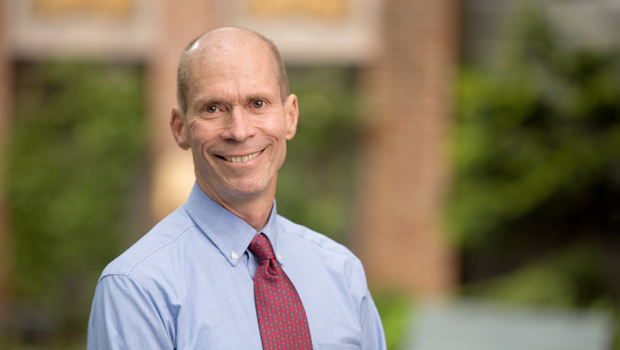Dr. Greg Simon wins national suicide prevention award

Kaiser Permanente physician-scientist will receive American Foundation for Suicide Prevention’s Lifesavers Research Award.
Greg Simon, MD, MPH, will receive the American Foundation for Suicide Prevention (AFSP)’s Research Award at its Lifesavers Gala 2019 on May 7 in New York. The AFSP will also honor four others, including Anderson Cooper of CNN and CBS News.
Dr. Simon is a psychiatrist at Kaiser Permanente in Washington and a senior investigator at Kaiser Permanente Washington Health Research Institute. A University of Washington research professor of psychiatry and behavioral sciences, he leads the national Mental Health Research Network.
“We want to prevent suicide, so we must keep getting better at predicting it—although unfortunately we may never be able to predict every suicide,” Dr. Simon says. In 2017, 14 in 100,000 Americans died by suicide, with rates rising in recent years, especially in rural areas, according to the National Center for Health Statistics.
“There’s a conspiracy of silence around suicidal thoughts, because it’s awkward to discuss,” Dr. Simon says. “So we’ve found that we have to incorporate talking about it into our standard care. Our suicide prevention work is a great example of how research and care keep influencing each other to improve our patients’ health. When research springs from clinicians’ and patients’ questions, ‘learning health systems’ can put results into practice much faster than the oft-cited 17-year lag.”
It all started when Kaiser Permanente in Washington began routinely using a mental health questionnaire—a recognized hallmark of good care—in mental health and primary care. Now standard practice calls for all Kaiser Permanente Washington patients to be asked routinely to answer this questionnaire at least yearly at primary care visits—and at every visit for mental health concerns.
One question asks whether patients have thought, in the last two weeks, about wanting to harm themselves. First, Dr. Simon and his colleagues proved in 2013 that patients who answer “yes” all too often attempt suicide. Then the next year they implemented a standard process for follow-up to help prevent these patients from harming themselves, including personal safety plans, safe firearm storage, and disposing of extra medications. This work has spread to some other Kaiser Permanente regions—and beyond, including some other integrated health systems around the country.
Recently, Dr. Simon and his colleagues have used machine-learning models to develop and test a more sophisticated—and accurate—way to predict risk of suicide, by combining mental health questionnaire responses with information from electronic health records, including prior suicide attempts and mental health and substance use diagnoses.
“We’re excited that Kaiser Permanente in Washington plans to put this new research into practice soon,” Dr. Simon says. “And now we’re conducting a large trial here to test two different outreach programs to prevent suicide attempt in people who are at high risk.”
This work complements Kaiser Permanente’s ongoing efforts to emphasize the importance of mental health and wellness and its impact on total health: mind, body, and spirit in unison. A research brief sums up Kaiser Permanente’s research on mental health.
Profile

What inspires Dr. Greg Simon to study mental health?
Kaiser Permanente Share profiles longtime psychiatrist, KPWHRI investigator, and Mental Health Research Network leader.
Read about it in Healthy Findings.
Mental Health

Suicide prevention: Research network finds new way to predict risk
Led by KPWHRI scientists, study aims to target those who need interventions most.
Read it in News and Events.


